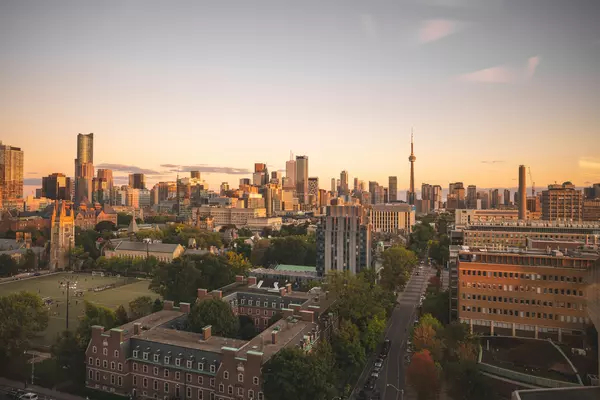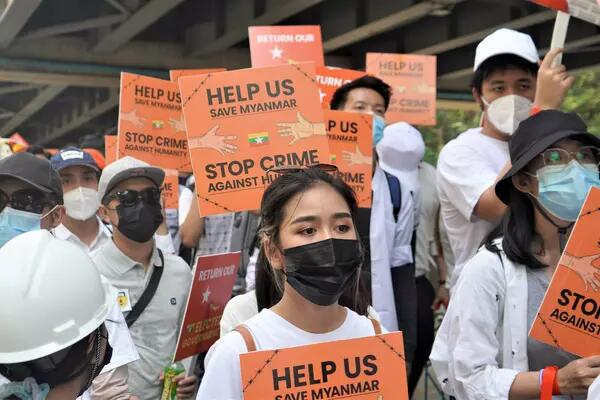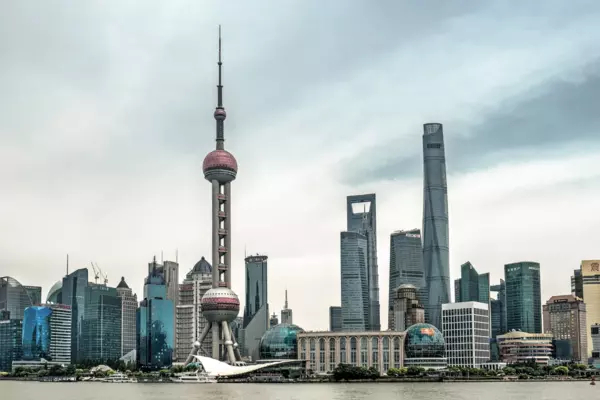Professor Moussa P. Blimpo is an Assistant Professor of Economic Inequality and Societies at the Munk School. He has worked with the World Bank as a senior economist in the Office of the Chief Economist for the Africa Region. He also founded and led the Centre for Research and Opinion Polls (CROP), a think tank in Togo, which was ranked as one of the top 10 new think tanks in the world in 2013. He spoke to the Munk School about economic development in Africa and the need for tailored, locally informed approaches to energy transitions on the continent.
What are you currently working on and what is the common thread that links your diverse interests?
I’m primarily a development economist and, in our field, we look at ways to improve wellbeing and to increase economic activities and jobs creation in the developing part of the world. It’s not a one-size-fits-all business or about a particular sector; it’s about how sectors are connected and the institutions that underpin the social fabric.
After my PhD, I worked on human capital-related issues like education policies in African countries, focusing on the demand side: how to get parents, communities, and students more interested and involved and how to improve the overall education system.
I had also been working on a couple of projects about infrastructure, so when I joined the World Bank, I was tasked to lead research programs on access to electricity and on digital development.
This work at the World Bank led me to the issue of climate because when you talk about energy, it’s difficult to ignore the issue of climate change. In the context of low-income countries like those in Africa, it is not a simple question of reducing emissions – which are already the lowest in the world – it is about how to achieve the prosperity that they aspire to under the constraints the climate imperative may raise. So, the central question I got curious about is:
How do you square the equation of giving quality energy to African countries, while keeping the importance of climate change in mind?
You asked about the common thread. My work emphasizes connecting dots for more effective policy prescriptions. Traditionally, research is about deep dives into somewhat narrow but important questions to find clear answers. But for that research to be policy-relevant, it’s crucial to be able to connect dots on related things that may be seemingly unrelated. The fact that I work on several issues, and that I have very deep expertise in some of them, allows me to see the broader patterns and connect these dots.
What barriers exist to understanding the relationship between energy transitions and economic development?
My former colleagues at the Clean Air Task Force and I could see that, in policy circles, there was a bit of hypocrisy: people would say what needed to be said about the climate but, at the same time, would also talk about development aspirations, about industrialization, creating jobs, and addressing hardships on the continent. They would discuss lowering emissions but in the same way as advanced economies do, ignoring that emissions are already very low on the African continent. We wanted to find out whether researchers were approaching energy transitions in Africa in the same contradictory way.
In a paper I presented at COP27 [held in Egypt in 2022], now published in Energy Policy, we examined the research literature on energy transition modeling on the African continent and we found the exact same disconnect. The models that look at how the African continent could move towards sustainability and get close to net zero implicitly assumed that the continent would remain largely poor – say, by 2050. If that is leading the narrative around the climate discussion, it also influences the outcome and that is just not acceptable.
How do you think policymakers in African countries should approach these combined priorities of climate change and economic development?
They need to be pragmatic. They need to understand that they have more bargaining power than they think but they also need to get serious about the tough decisions they must make, even if that will upset some.
The first step is to be honest. The reality is, that if you take any reasonable model for the African continent, emissions are going to go up. After that, they will stabilize and eventually go down. It may take longer to reach net zero, and the only reason African countries are not saying that strongly is because they think they don’t have the power to say so or might have to forgo funding that is increasingly tied to climate change.
Governments need to take responsibility and commit to dealing with the economic problems foremost to achieve more progress. This kind of progress would allow more political buy-in of the people for more effective climate action, but it would also build the capability or absorptive capacity to integrate the technology that we need to get to net zero.
Does the digital revolution offer opportunities to achieve some of these climate and sustainability goals?
The digital can help solve local problems but, as our work at the World Bank shows, we need to think about it, not for its own sake, but for what the digital can do. We need to enable local, well-educated entrepreneurs to find the solutions that will solve local problems. But, right now, that’s not really the approach.
Let me give you an example from agriculture. Agriculture in Africa is highly fragmented; it’s a lot of small-scale farms. They cannot be mechanized: you can’t buy a very expensive tractor for a small plot. Recently, a couple of young people in Nigeria, inspired by the Uber model, created a business called Hello Tractor. It allows farmers to borrow equipment for short periods of time, mechanizing even relatively small agricultural farms.
We need to enable young people with financing, but it is a mistake to finance an entrepreneur in Africa and then tell them what they need to create, which the prevailing approach. They need flexibility and trust to come up with the solution.
The African Union has set its sights on the year 2063 for achieving greater, more equitable, more sustainable economic and social development for its member states. What is the significance of this long-term vision?
First, it’s a great thing to have a common vision but progress [toward the 2063 goals] will not be easy. We don’t have a single government; [the African Union’s commission] will need a bit more power so that we can see more progress in the short and medium term. And we need a few success stories that will inspire others to take off.
We also need to remove borders and not just the physical ones. When you have a cell phone in Lomé, Togo, and cross the border into Ghana, you have to change SIM cards. If you then cross into Côte d’Ivoire, only a few hours away, you have to change SIM cards again. If you then go to Benin, you have to pay for roaming. Or if you have a degree in Ghana and you move next door to Togo, it’s very difficult to have it recognized. These barriers are even stronger than the physical borders.
There has been some progress: the [African] Continental Free Trade Area [signed in 2018] created for the first time a trade block that is the entire continent. But these are the kinds of things that we need to see more of if [the 2063] vision is to be realized.
What are your upcoming plans?
My long-term goal is to contribute to capacity-strengthening efforts on the continent. Fifteen years ago, I set up a think tank in my own country [Togo-based CROP]. And even though I’m no longer part of it, it’s thriving and that is one of my greatest achievements. My dream and long-term goal is a research centre in Togo. It would be an effective way to have an impact on policy, using knowledge produced by locals.
In terms of research, right now I am working on multiple research projects in the areas I mentioned earlier. For example, I am currently examining public opinion poll data from over 30 African countries to assess views at the intersection of climate and development. I want to see people’s views when they are presented with the trade-offs. If you ask someone, “Should the government do more for the planet?”, they will likely say yes because there is no reason to say no. But what if that means there are fewer jobs? I’m interested in how people view these trade-offs in their everyday lives.


